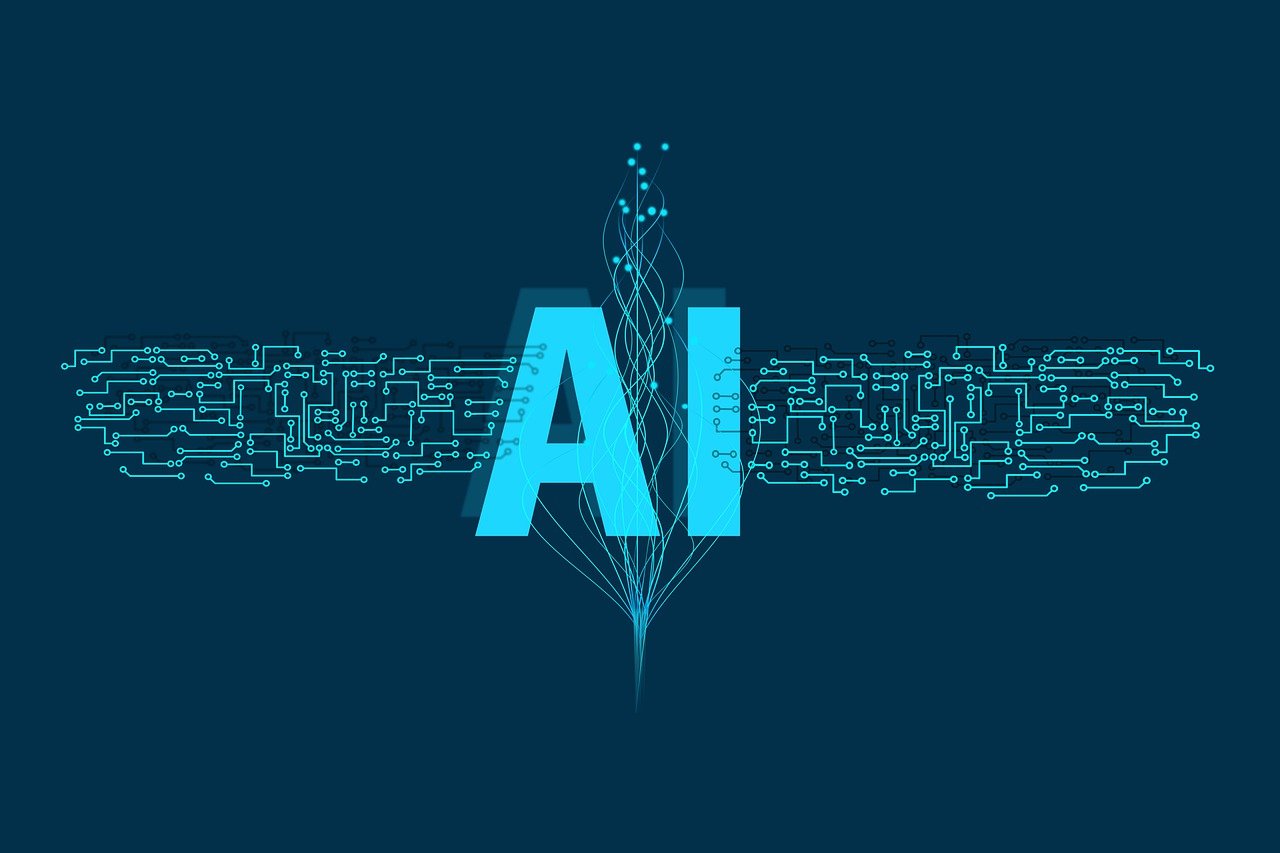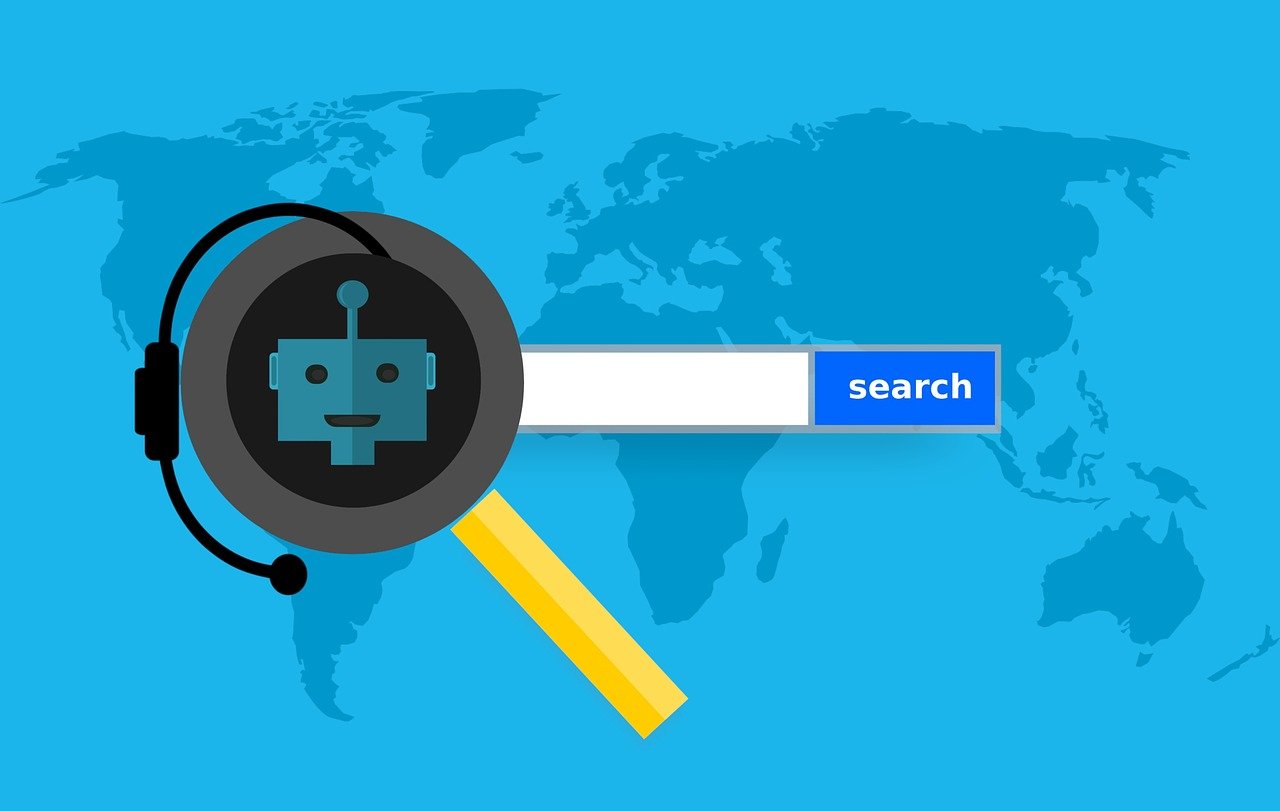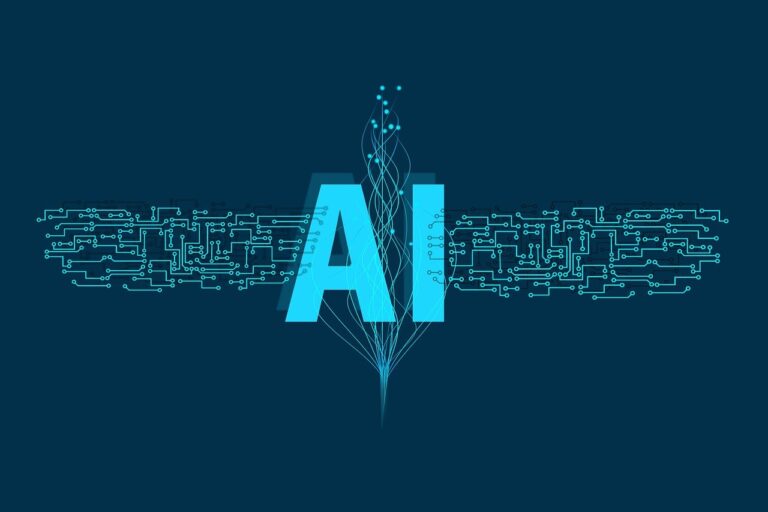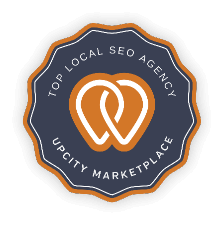Ever wondered how Google, the grand overlord of search engines, decides what to show you first when you type in a question or search term? That’s where Search Engine Optimization, or SEO as it’s fondly called, comes into play. Simply put, SEO is a collection of strategies, techniques, and tactics used to boost the number of visitors to a website by obtaining a high-ranking placement on the search results page. It’s about understanding what people are looking for online and making sure your content is easily discoverable by search engines. It’s kind of like playing a game with Google, where you try to guess what it wants to see and then offer just that.
But hold on a minute, we can’t talk about SEO without mentioning its techy buddy – Artificial Intelligence (AI). AI is the replication of human thought patterns and human intelligence by machines, particularly computer systems. This includes learning, reasoning, problem-solving, perception, and language understanding. AI is like that genius friend who never forgets a face, can solve a Rubik’s cube in seconds, and even predict what you’re going to say before you’ve said it.
Now, you might be wondering, what’s the connection between SEO and AI? They might seem like two completely different ball games, but in fact, they’re more like two sides of the same coin in today’s digital age. AI has started to play a huge role in shaping SEO strategies. Imagine being able to predict what kind of content will rank higher on Google or what your audience really wants to read about – sounds like magic, right? Well, that’s the kind of magic AI can bring to your SEO strategy. It’s all about blending the art of SEO with the science of AI to make your content more visible and engaging.
As we dig deeper into this topic, we’ll discover how AI is not just a buzzword but a game-changer in the SEO world. The fusion of AI and SEO is shaping the future of online content, and guess what? You’re part of that exciting journey! So, let’s get started, shall we?
The Importance Of SEO
Once upon a time, back in the 1990s, search engines were just directories compiled by humans. It wasn’t until Google’s arrival that things really started to change. Google introduced a way to catalog the internet based on links, using a nifty algorithm. This was the beginning of SEO as we know it. Since then, SEO has continuously evolved, making it a never-ending learning journey.
Now, onto the factors impacting SEO. Picture your SEO strategy as a delicious pie. Various ingredients make that pie taste good – these are the key factors impacting SEO.

Key Factors Impacting SEO
Content Quality
The relevance, freshness, and usefulness of your content are crucial. High-quality content attracts more visitors and prompts them to stay on your site longer, signaling to search engines that your site is valuable.
Technical SEO
This includes elements like your website’s loading speed, mobile-friendliness, crawlability, and security. These factors ensure that search engines can easily understand and index your website and that visitors have a positive experience.
On-Page SEO
This involves optimizing elements on your website that you have control over. It includes the strategic use of keywords, proper tagging of headers, and writing effective meta descriptions.
Off-Page SEO
This is about building your website’s credibility and authority. Techniques include getting other reputable websites to link back to yours, promoting your website on social media, and improving your online reputation. One example of this is the implementation of internal links and backlinks.
User Experience (UX)
With the introduction of Google’s Page Experience Update, it’s more important than ever to ensure your website provides a positive user experience. This includes fast loading times, easy navigation, a visually appealing layout, and optimization for mobile devices.
So, why should businesses care about SEO? Well, in today’s digital world, nearly every customer journey starts with a search engine. SEO and search engine marketing is the key to getting discovered online. Without SEO, your website is like a billboard in a forest – it exists, but no one sees it. SEO helps your website become visible to those who are looking for the products or services you offer, leading to increased visibility, credibility, and business growth.
So whether you’re a small startup or a big corporation, SEO isn’t just a nice-to-have – it’s a must. It’s the secret recipe for driving traffic to your site, reaching more customers, and boosting your online reputation. And with AI thrown into the mix, things are only getting more exciting.
AI and its Role in Modern Technology
Artificial Intelligence (AI) is a cutting-edge technology that helps computers perform tasks typically requiring human smarts – think understanding language, recognizing patterns, and making decisions.
AI isn’t just a concept for sci-fi movies. It’s a reality and it’s right here, helping us find the right Netflix movie or predicting what we want to buy next. It’s changing the game in healthcare by predicting diseases and improving patient care. In finance, it helps detect fraud and forecast investments. It’s even transforming industries like automotive, retail, and agriculture by driving efficiencies, enhancing customer service, and automating routine tasks.
In short, AI isn’t just about the future – it’s shaping our present, impacting almost every industry, and creating a more connected, efficient world.
How Is AI Transforming SEO?
AI and SEO might seem like alphabet soup, but when combined, they’re serving up some pretty substantial results in the world of digital marketing. At its core, AI’s role in SEO involves automating tasks, analyzing massive amounts of data, and predicting trends to create more effective SEO strategies.
AI’s impact on SEO strategies is becoming increasingly evident. It’s helping businesses to automate keyword research, identify gaps in content, and optimize their websites based on real-time user behavior. Essentially, it’s taking the guesswork out of SEO, helping businesses make data-driven decisions to improve their search engine rankings.
Real World Examples
Now, let’s talk about real-world examples where AI is already working its magic on SEO. Tools like BrightEdge or Market Brew leverage AI to provide detailed analysis of SEO performance and offer practical recommendations for improvement. Also, Google’s AI algorithm, RankBrain, uses machine learning to interpret search queries and provide more accurate search results. This has prompted businesses to focus more on producing quality content that genuinely meets user’s needs.
AI is changing the SEO game by providing advanced tools and insights that were previously unattainable. The union of AI and SEO is already revolutionizing the way businesses approach their online presence. So, if you’re looking to stay ahead of the curve, it’s time to embrace this powerful duo.
Specific Ways AI is Used in SEO
Automated Content Optimization
AI can analyze your content in relation to SEO best practices, competitor content, and the latest Google algorithm updates. It can provide recommendations to enhance content quality, readability, and keyword usage, making your content more SEO-friendly and appealing to readers.
Predictive Keyword Analysis
AI can crunch large sets of keyword data, predicting which keywords are likely to perform well in the future. This enables you to tailor your content strategy accordingly and stay one step ahead of the competition.
Voice Search Optimization
With the rise of voice assistants like Siri and Alexa, optimizing for voice search has become a crucial aspect of SEO. AI can help analyze voice search queries to understand the language and phrases used, helping businesses optimize their content for these long-tail keywords.
Semantic Search and NLP (Natural Language Processing)
AI’s NLP abilities can understand the context and intent behind search queries. This allows for semantic search optimization, where businesses can optimize their content based not only on specific keywords but also on the context around them.
User Experience Optimization
AI can analyze user behavior data to understand how visitors interact with a website. It can provide insights on how to enhance site design, navigation, and content to improve user experience and, in turn, boost SEO. One good way to do this is to implement guest posting.
User Click-through Rate (CTR)
A compelling meta description can significantly increase a webpage’s click-through rate. It serves as a mini-advertisement for the content on the page, and if it accurately and enticingly describes the content, users are more likely to click on it. AI can analyze the performance data of various meta descriptions to determine what text results in higher CTRs, and use this information to optimize future meta descriptions.
Internal Link Optimization
AI plays a vital role in optimizing internal links—a crucial part of SEO. Through AI, we can automate the process of identifying relevant internal linking opportunities, leading to a more efficient and contextual linking strategy. AI’s capability to analyze user behavior data helps optimize navigation paths, enhancing user experiences, and guiding search engines toward valuable content.
External Link Optimization
External links, also known as outbound links, are those that point from your website to other websites. AI augments external linking strategies by automatically pinpointing suitable linking opportunities within content, evaluating the quality of potential link destinations based on factors like domain authority and relevance, and continuously tracking user interaction with these links to provide valuable insights for refining your strategy.
The Benefits and Challenges of Integrating AI into Your SEO Strategy

Benefits
Integrating AI into your SEO strategy can make your life easier and your SEO efforts more effective. It’s like having your own personal SEO expert that never sleeps.
Increased Efficiency
Let’s face it, SEO can be time-consuming. From keyword research to content optimization, there’s a lot to manage. But here’s the good news: AI can handle many of these tasks, automating processes and saving you precious time. This efficiency boost means you can focus more on strategic planning and less on the nitty-gritty.
Improved Precision in Keyword and Trend Analysis
Remember when keyword analysis involved educated guesses and crossed fingers? Thanks to AI, those days are behind us. AI can analyze massive amounts of keyword data and accurately predict future trends. This level of precision takes the guesswork out of your SEO strategy, giving you a competitive edge.
Enhanced Customization and Personalization
AI can analyze user behavior, engagement patterns, and personal preferences. This enables hyper-personalization, where your SEO strategy is tailored not just to any audience, but to your specific audience. The result? More relevant content, better engagement, and a stronger connection with your audience.
Better Content Generation
AI isn’t just about numbers and data; it’s also about words. With AI-powered tools, you can generate high-quality, SEO-friendly content that resonates with your audience and complies with Google’s latest algorithm updates. Plus, AI can help optimize your existing content, ensuring it continues to perform well over time.
Challenges
The benefits of using AI in SEO are significant. However, it’s vital to approach AI with a balanced perspective, recognizing its potential but also acknowledging its limitations. Remember, AI is a tool designed to assist—not replace—human expertise and judgment.
Dependence on Data Quality
Like any good recipe, the outcome of your AI algorithms largely depends on the quality of your ingredients—in this case, data. Inaccurate, outdated, or biased data can lead to misleading insights, ineffective strategies, and ultimately, poor SEO performance. So, it’s essential to ensure you’re feeding your AI high-quality, relevant, and unbiased data.
Ethical Considerations
As with any technology, there are ethical considerations to keep in mind when using AI. This can range from issues of data privacy (how you collect, store, and use data) to the risk of creating content that lacks a human touch or fails to consider cultural sensitivities. It’s important to address these ethical aspects to maintain your brand’s integrity and customer trust.
AI Transparency and Explainability Issues
AI is complex, and its decision-making process isn’t always transparent. This “black box” nature can make it difficult to understand why AI has made certain recommendations or predictions. As a result, relying solely on AI without understanding its reasoning could potentially lead to misguided SEO strategies.
Tools and Platforms for AI-Enhanced SEO
Keyword Research Tools
Google Keyword Planner
This is a free tool from Google that provides keyword ideas based on your input, along with estimates of search volumes. It’s a good starting point, especially if you’re running Google Ads campaigns.
SEMrush
SEMrush is a comprehensive SEO tool that offers advanced keyword research features. You can discover new keywords, see the estimated search volumes, understand keyword difficulty, and even see what keywords your competitors are using.
Ahrefs
Similar to SEMrush, Ahrefs is a full SEO suite that offers keyword research capabilities. Its Keyword Explorer tool provides extensive data about each keyword, including search volume, keyword difficulty, and how many clicks you can expect from a top-ranking position.
Moz Keyword Explorer
Moz’s tool gives you keyword recommendations, provides information on keyword difficulty, estimates of search volume, and an opportunity score, which suggests how worthwhile it could be to target a specific keyword.
Popular AI SEO Tools
BrightEdge
BrightEdge uses AI to provide actionable insights for your SEO strategy. It can identify high-performing keywords, suggest content optimizations, and help you understand your competition.
Market Brew
This platform uses AI to model search engine behaviors, giving you a glimpse of how search algorithms see your site. It provides recommendations for technical SEO and content improvements.
CanIRank
CanIRank uses AI to provide detailed SEO analysis and actionable recommendations. It offers insights on improving your site’s content and architecture for better SEO performance.
Pricing, Features, and Comparison
The cost and features of these tools can vary significantly. BrightEdge offers robust features including content recommendations and competitive analysis, but it comes with a higher price tag and might be more suitable for larger enterprises. Market Brew also offers extensive features, including search engine modeling, but it’s more technical in nature, making it ideal for SEO experts. CanIRank, on the other hand, is a more affordable option, offering a great mix of data-driven insights and actionable recommendations, suitable for startups or small businesses.
Selecting the Right Tool for Your Needs
Choosing the right AI-enhanced SEO tool depends on several factors:
Your budget
Determine how much you’re willing to invest in an SEO tool. Higher-priced options often come with more advanced features but make sure you’ll use them enough to justify the cost.
Your SEO expertise
Some tools require a deeper understanding of SEO. If you’re a beginner, consider a tool that provides straightforward, actionable recommendations.
Your business size and needs
Larger businesses with complex websites might benefit from more comprehensive tools, while smaller businesses or startups may prefer simpler, more cost-effective options.
Future Predictions of AI And SEO
Upcoming Trends in AI for SEO

More Advanced Semantic Analysis
As AI continues to improve its understanding of natural language, we can expect even more nuanced semantic analysis. This will enable businesses to better align their content with the true intent behind search queries.
Increased Personalization
AI’s ability to analyze user behavior and preferences will result in even more personalized SEO strategies. This could involve creating custom content for individual users or tailoring website experiences based on user behavior.
Voice Search Optimization
With the increasing use of voice assistants, optimizing for voice search will become even more important. Future AI tools will likely provide more detailed insights into voice search behavior, helping businesses optimize their content for this growing trend.
How Businesses Can Prepare for These Changes
Embrace AI
The future of SEO is undeniably intertwined with AI. Businesses should invest in AI tools and resources now to stay ahead of the curve.
Focus on Quality
As search engines get better at understanding and evaluating content, businesses must prioritize quality. This means creating high-quality content that meets user needs, rather than focusing solely on keywords or other SEO “tricks.”
Keep Learning
The digital marketing landscape is always changing. Continuous learning and adaptability will be key to navigating these changes successfully.
A Quick Wrap-Up
AI is not just a trend—it’s here to stay. Businesses that adapt and embrace AI in their SEO strategies will find themselves not just keeping up with the digital marketing landscape but leading it. From saving time on routine tasks to uncovering deeper insights into user behavior and preferences, the benefits of AI are significant. Don’t be left behind; it’s time to harness the power of AI in your SEO strategies.
As we look towards the future, one thing is clear – artificial intelligence is set to play an even larger role in search engine optimization. This presents an exciting opportunity for businesses to transform their online presence, connect with their audience on a deeper level, and ultimately, drive more traffic and conversions. The union of AI and SEO is still in its early stages, and we’re excited to see where this journey takes us. In the rapidly evolving world of digital marketing, one thing remains certain: the businesses that adapt are the businesses that thrive.















